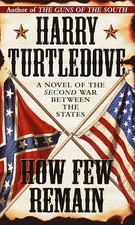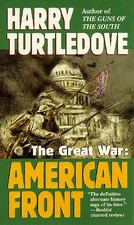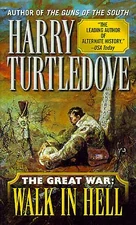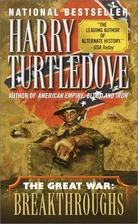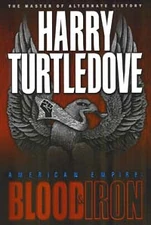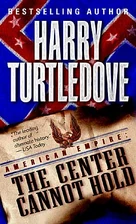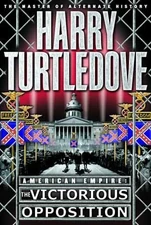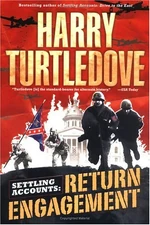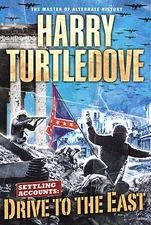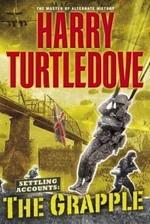No edit summary |
No edit summary |
||
| Line 50: | Line 50: | ||
Refusing to believe that he had done anything wrong, Pinkard was a nearly impossible client for his attorney, [[Jonathan Moss]], to defend when he was put on trial for [[Crimes against Humanity|crimes against humanity]]. Despite Moss' best efforts, Pinkard, along with other prominent death camp personnel, was convicted for his immediate role in the [[Population Reduction]] and sentenced to death by hanging. |
Refusing to believe that he had done anything wrong, Pinkard was a nearly impossible client for his attorney, [[Jonathan Moss]], to defend when he was put on trial for [[Crimes against Humanity|crimes against humanity]]. Despite Moss' best efforts, Pinkard, along with other prominent death camp personnel, was convicted for his immediate role in the [[Population Reduction]] and sentenced to death by hanging. |
||
| + | |||
| + | == Literary Comment == |
||
| + | |||
| + | Though the fact is lost sight of by the later part of the series, when first introduced Jeff Pinkard is a highly symapthetic character: a loving and caring husband, a loyal friend, a skilled worker who is good at his job and loves it, a soldier who fights bravely without feeling hatred or malice towards the enemy, and - as noted above - not showing any overt racial prejudice. Throughout the three volumes set during the [[Great War]], Pinkard is never shown taking any morally reprehnsible act. Also in his later career, a full two decades pass between his joining the Freedom Party and his first commission of murder in its service, the interwar decades constituting for him a very slow slide down a slippery slope. |
||
| + | |||
| + | Turtldove's choosing to give a monstrous mass murderer this background - rather than making him a despicable character to begin with - constitutes a clear philosophical and moral statement: a person is not born evil, but becomes evil through circumstances and by decisions taken at crucial turning points during a lifetime. |
||
| + | |||
{{Southern Victory}} |
{{Southern Victory}} |
||
Revision as of 12:09, 9 May 2010
Template:Infobox Fictional CharacterJefferson Davis Pinkard (d. 1945) (usually known as Jeff Pinkard) was a veteran of the Great War, a staunch member of the Freedom Party, and an architect of the Population Reduction in the Confederacy during the Second Great War.
Pinkard was a steelworker at Sloss Steel Foundry before the Great War. He and his wife, Emily, lived in Birmingham, Alabama. He was not drafted until 1915 because of his important work for the wartime cause. During the war he was first assigned to fighting against the Red Rebellion in southern Georgia. He helped put down the short-lived rebellion there and then was moved to fight in western Texas.
Some time after the move he was able to take leave and get home to an unexpected Emily. When he came home he found that his wife committing adultery with his best friend. Even though he dealt with the situation calmly their marriage would never be the same. He ended up finishing the war in western Texas.
There was in Pinkard's early career little to hint of his later sinister role in the mass murder of blacks. Before the war, Pinkard was no more prejudiced against blacks than the average Confederate citizen. Prior to his conscription, Pinkard had worked with blacks who replaced the whites drafted to the front, and developed a level resepct for Negro co-workers who had shown themselves capable of the dangerous and demanding job. On one occasion he even vociferously defended a black fellow-worker when police came to arrest him on charges of sedition.
The war and Emily's faithlessness changed that. Pinkard grew embittered with Emily for cheating on him, and blamed the Red Rebels for taking him away from her, and giving her the opportunity for adultery. Once he came back from the war, Pinkard returned to his job at the Sloss works, and was able to hold on to it the period of postwar inflation that occurred throughout the CSA. During this time he also discovered the Freedom Party after listening to Jake Featherston speak in Birmingham. The message of vengeance appealed to him. He became an avid supporter of the Party, to the detriment of his marriage. He and Emily began to argue more, which escalated into physical violence, which escalated into rape. Finally, after he found her cheating on him once again he threw her out of the house. With Emily out of his life, he completely devoted himself to the Party.
Pinkard was at the 1922 Birmingham rally where Wade Hampton V was assassinated. He stayed with the Party even as others abandoned it in droves. He joined the regiment of Freedom Party volunteers who supported the Hapsburg emperor of Mexico during the Mexican Civil War. His most valuable experience in Mexico was his time as the head of a prisoner of war camp. He learned valuable lessons in the set-up and the efficient organization of such camps. Ironically, his original motivation for becoming involved in the camps was inspired by his concern that Monarchists were badly mistreating their Republican prisoners.
Upon returning to the C.S., Pinkard was fired by the company he worked for. He was able to get a job in a prison due to his previous experience at the POW camp. He stayed at the prison for a while and was as dedicated to the Party as ever. After Featherston elected to the presidency in 1933, Pinkard was put in charge of Camp Dependable, a prison camp in Louisiana.
The camp had been originally set up former Louisiana governor Huey Long as part of his efforts to clamp down on the Freedom Party in his state. After Featherston had Long assasinated, the camp was filled with Long's own supporters. Gradually, these white political prisoners were moved away and the camp filled with supposed black rebels. For some time Pinkard's job was simply to guard them, which he did in a firm but not gratuituously cruel way. However, as the camp grew crowded and resources tight, he was ordered by Attorney General Ferdinand Koenig to "reduce the camp's population" by repeatedly taking a random prisoners out and killing them in the nearby swamps. The "Population Reduction" was born.
Pinkard showed considerable ingenuity in developing new ways of killing the prisoners, which in turn insured his rise through the ranks of the Party. As "Population Reduction" imperceptibly moved from killing black rebels to killing all lacks including women and children, he was soon put in charge of a new and larger camp, Camp Determination in west Texas near the town of Snyder to which blacks from all over the Confederacy were taken in overcrowded trains, to be killed. The stepping up of the Population Reduction ran concurrently with the Second Great War.
In 1942, Pinkard married Edith Blades, the widow of camp guard Chick Blades, who had committed suicide becuase of being unable to stand the daily killing of Blacks. Pinkard loved Edith, tried his best to be a good father to her two sons, Frank and Willie, and was overjoyed when Edith became pregnant. He saw no contradiction between enjoying his new-found domestic bliss and his sending every day thousands of black families, parents and children, to their deaths.
As the Second Great War continued, his camp was threatened by the US force driving towards nearby Lubbock.
The US force continued its advance into Texas after the fall of Lubbock in the spring of 1943. In the meantime, the "population reductions" started falling as US air strikes knocked out the rail lines leading toward Determination while destroying Snyder. Pinkard sited a location for a new camp 20 miles north of the city of Houston near the town of Humble. He moved his family into this safer location as work finished on Camp Humble.
As Abner Dowling's Eleventh Army liberated Camp Determination, Pinkard oversaw the construction his new camp, with the latest "improvement" - a crematorium to both "get rid of the bodies" and "get rid of the evidence". However, such improvements weren't as satisfactory as he'd hoped. The crematorium malfunctioned, sending greasy black smoke and occasional human remains high into the air. Indeed, the only bright spot during Pinkard's stay at Camp Humble, was the birth of his son Raymond.
In 1944, Pinkard was briefly reunited with Vespasian, a Negro from the Sloss Foundry, whom Pinkard almost befriended and thought highly of. In a last hope for life, Vespasian asked Pinkard for help. Pinkard promptly sent him to the gas chambers, telling him it was safe.
With increasing Confederate defeats, the state of Texas seceded from the CSA and proclaimed itself an independent republic, negotiating a separate armistice with the USA. One requirement of the U.S.-Texas armistice was the surrender of all Camp Humble officials, Pinkard included.
Refusing to believe that he had done anything wrong, Pinkard was a nearly impossible client for his attorney, Jonathan Moss, to defend when he was put on trial for crimes against humanity. Despite Moss' best efforts, Pinkard, along with other prominent death camp personnel, was convicted for his immediate role in the Population Reduction and sentenced to death by hanging.
Literary Comment
Though the fact is lost sight of by the later part of the series, when first introduced Jeff Pinkard is a highly symapthetic character: a loving and caring husband, a loyal friend, a skilled worker who is good at his job and loves it, a soldier who fights bravely without feeling hatred or malice towards the enemy, and - as noted above - not showing any overt racial prejudice. Throughout the three volumes set during the Great War, Pinkard is never shown taking any morally reprehnsible act. Also in his later career, a full two decades pass between his joining the Freedom Party and his first commission of murder in its service, the interwar decades constituting for him a very slow slide down a slippery slope.
Turtldove's choosing to give a monstrous mass murderer this background - rather than making him a despicable character to begin with - constitutes a clear philosophical and moral statement: a person is not born evil, but becomes evil through circumstances and by decisions taken at crucial turning points during a lifetime.
